We’ve all heard the breakfast gospel: “It’s the most important meal of the day!” But here’s the plot twist nobody talks about—half the stuff we’re calling “breakfast” is basically a cardiovascular crime scene waiting to happen.
The food industry has gotten good at dressing up sugar bombs in health halos. That “heart-healthy” cereal? That protein-packed granola? That antioxidant-rich smoothie? Yeah, they might be doing more damage than that donut you feel guilty about wanting.
Here’s the thing: your heart doesn’t care about marketing buzzwords. It cares about what actually hits your bloodstream at 7 AM. And when you start your day with a blood sugar roller coaster, an inflammation party, and a sodium overload, you’re basically asking your cardiovascular system to work overtime for the next 16 hours.
This isn’t about becoming a breakfast perfectionist or swearing off everything that tastes good. It’s about knowing what you’re actually putting in your body so you can make smarter choices. Because when it comes to heart health, ignorance definitely isn’t bliss—it’s just expensive doctor visits later. So let’s pull back the curtain on the breakfast foods that are secretly waging war on your arteries.
Granola: Health Food in Disguise
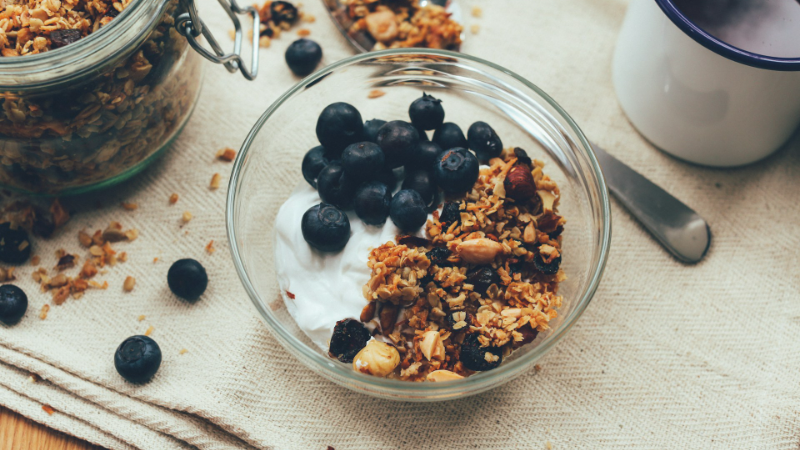
It looks wholesome—oats, nuts, maybe some dried fruit? But the reality is that many store-bought granolas are loaded with added sugars and oils, often contributing to a calorie count that can undermine their perceived health benefits.
Many contain at least 9 grams of sugar per serving; some pack nearly four teaspoons (17 grams) in a single serving. This added sugar isn’t just a weight issue; it’s been linked to increased blood pressure and higher triglyceride levels. That morning crunch might be setting you up for long-term problems.
The good news? Not all granolas are created equal. Look for brands with 5 grams or fewer of added sugar per serving, where whole foods like oats, nuts, and seeds are listed first, not sweeteners. But even then, watch your portions. That “healthy” granola can still pack 270–597 calories per serving, making it easy to overdo it.
Flavored Yogurt
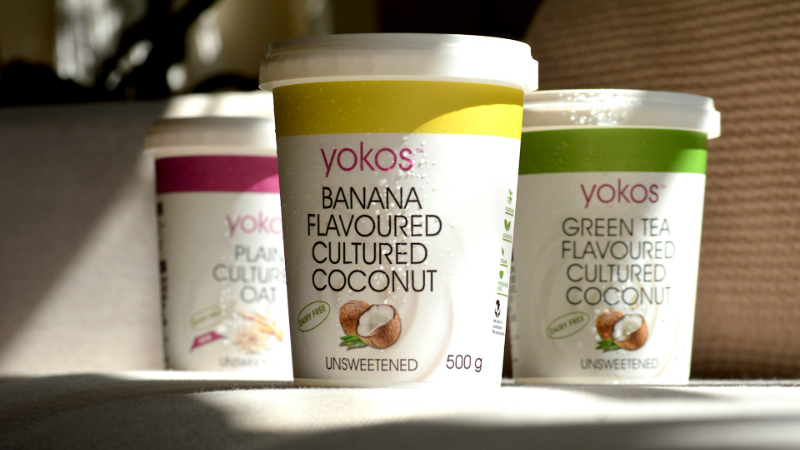
“Low-fat,” “berry bliss,” “heart-healthy probiotics”—the label screams wellness. But flip it over. That 150g tub can pack over 20g of sugar—basically a breakfast dessert in disguise.
While yogurt can be great for your gut and, thanks to probiotics, potentially beneficial for heart health, when it’s loaded with sugar and often low in the beneficial natural fats that contribute to satiety, it spikes your blood sugar and may not keep you feeling full for long. It’s this excessive sugar that poses the risk to your heart, not the yogurt base itself.
Pro tip: For the full benefits, opt for plain, full-fat Greek yogurt and add your own berries or other toppings. This gives you all the protein benefits without the sugar crash. If you choose flavored, always check the label for minimal added sugar (e.g., under 5g).
Store-Bought Smoothies
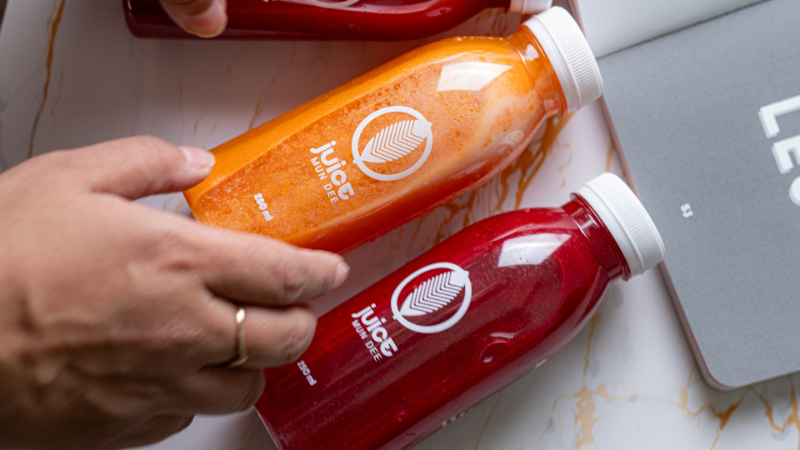
Smoothies have been branded as clean-eating essentials, but most bottled versions are closer to liquid candy. They’re often made with juice concentrate, added syrups, and barely a trace of fiber. That means rapid sugar absorption, insulin spikes, and, unsurprisingly, more cravings later. Your heart would much prefer you just eat an actual banana and drink some water.
Worth noting: While some brands offer lower-sugar, higher-fiber options, it’s crucial to read labels carefully. For actual heart-healthy benefits, homemade smoothies, especially those packed with whole fruits, vegetables, and seeds, are a far superior choice.
Muffins

Muffins get away with a lot. They wear the “bran” or “blueberry” mask, but, more often than not, they’re just cupcakes without frosting. They’re typically loaded with refined flour, excessive amounts of added fats (though some vegetable oils can be healthy, their quantity here is often problematic), and a ridiculous amount of sugar packed into a grab-and-go wrapper.
This combination creates the blood sugar rollercoaster no one asked for. And those oversized coffee shop muffins can easily have over 400 calories a pop, with many popular varieties exceeding 500–600 calories.
While not completely devoid, muffins offer minimal fiber or protein relative to their high calorie count, though this can vary significantly with homemade versions, which can be made much more nutritious. This makes them a fast pass to metabolic issues.
Processed Meats

Bacon, sausage, ham—they all have one thing in common: they’re delicious and terrible for your arteries. High in saturated fat, sodium, and often nitrates, these meats are a triple threat. Regular consumption has been tied to increased risk of heart disease, stroke, and even certain cancers. The most extensive studies show that eating just 50 grams daily (about two strips of bacon) bumps your heart disease risk by 18%, and that risk climbs with every extra serving.
Before you panic-toss your breakfast sandwich, we’re talking about increased relative risk here, not guaranteed doom. For most people, the absolute risk remains modest. But here’s the thing—when you’re already rolling the dice with genetics, stress, and whatever else life throws, why stack the deck against your ticker?
A little here and there? Maybe. But as a daily breakfast staple? That’s a no from your cardiologist.
Pancakes and Waffles
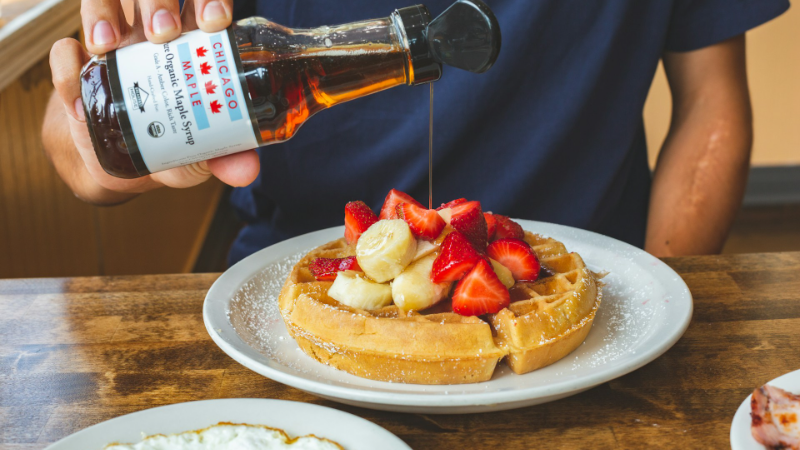
Flour, sugar, butter, syrup—stacked high and drowning in sweetness. Pancakes and waffles are nostalgic and comforting, but they’re not doing your heart any favors. Refined carbs raise blood sugar quickly. Syrup adds a sugar overload. And there’s barely any protein to balance things out. It’s basically dessert, and your cholesterol knows it.
It’s worth noting that portion size matters. Occasional indulgence is unlikely to harm heart health, but daily consumption could contribute to long-term risks.
Healthier Swaps: Use whole-grain flour or oats for fiber, substitute applesauce for butter, top with fresh fruit instead of syrup, and add nuts or Greek yogurt for protein.
Most Breakfast Cereals (Even the “Healthy” Ones)
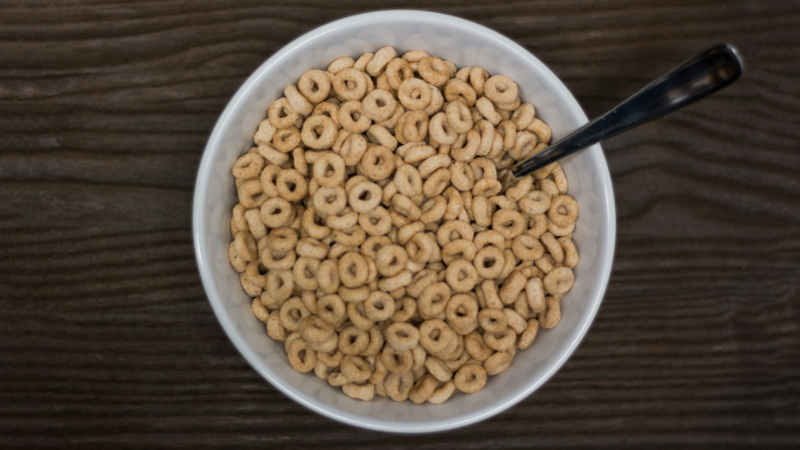
The cereal aisle is a masterclass in marketing — “heart smart,” “whole grain,” and “low fat” are some of the labels you see. But many of these boxes are filled with refined grains and added sugars. Even the ones with a few grams of fiber or some iron tacked on can send your blood sugar through the roof. The worst part is many leave you hungry again within a few hours, especially the highly processed, low-protein varieties.
However, this isn’t universal: Cereals that are truly high in fiber (aim for at least 3g per serving) and protein, particularly when eaten with protein-rich milk or yogurt, can provide better satiety. The key is distinguishing between genuinely nutritious options and those that carry misleading health claims. Pay close attention to the added sugars content on the nutrition label, ideally choosing options under 5-8g per serving.
White Toast with Butter or Margarine

It’s quick. It’s cheap. It’s also largely unhelpful for your heart, primarily due to the bread itself. White bread is stripped of its fiber and nutrients, turning to sugar in your bloodstream almost instantly. This rapid sugar spike is linked to inflammation and an increased risk of heart issues.
While modern margarines are now largely free of artificial trans fats and often lower in saturated fat than butter, butter still adds saturated fat. When combined with refined white bread, you’re left with a low-nutrient meal that can contribute to an inflammatory response in your body.
The real takeaway: The primary issue here is the refined white bread. Although portion sizes matter and occasional consumption of white toast isn’t catastrophic, the regular consumption pattern poses the greatest risk. For a truly heart-healthy option, choose whole-grain toast, which provides fiber and nutrients, and pair it with a spread like avocado, nut butter, or a modern, trans-fat-free margarine.
Commercial Fruit Juice
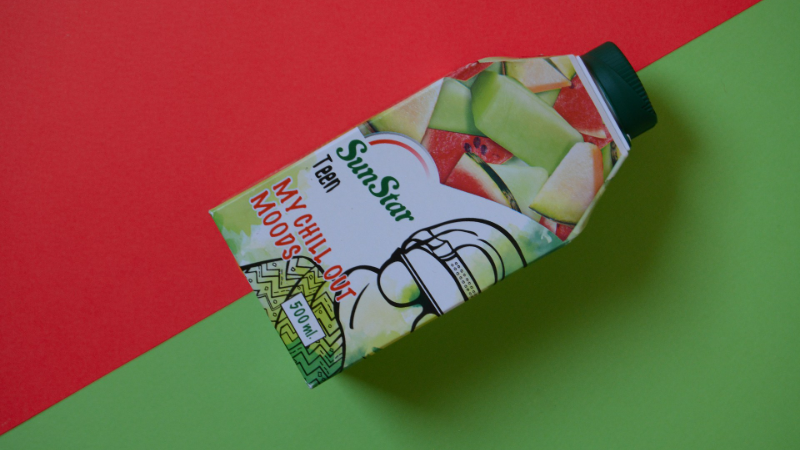
Orange juice has been sold as the picture of health since the 1950s. But it’s essentially concentrated fruit sugar with most of the beneficial fiber removed. Even 100% juice lacks the fiber and structure that slows sugar absorption in whole fruit, leading to faster blood sugar spikes and less satiety.
While research shows moderate consumption (up to 5 ounces daily) may have some cardiovascular benefits due to antioxidants and polyphenols, these don’t offset the fundamental issues: twice the calories and sugar of whole fruit, minimal fiber, and reduced feelings of fullness that can contribute to overconsumption.
The bottom line: 100% fruit juice isn’t as harmful as soda, but it’s still a concentrated sugar source that should be limited. Whole fruit delivers the same nutrients with built-in portion control and blood sugar regulation.
Toaster Pastries
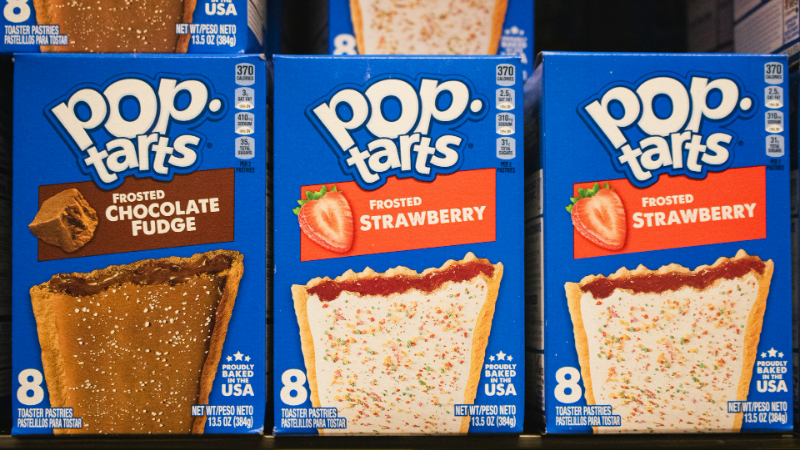
Toaster pastries (yes, we’re talking about Pop-Tarts and their cousins) are primarily made from refined flour and loaded with high-fructose corn syrup, delivering a whopping 30 grams of added sugar per serving—that’s 60% of your daily recommended intake in just two pastries. While they’re fortified with some B vitamins, folate, and iron, these synthetic additions don’t offset the nutritional damage from their ultra-processed nature.
These products are engineered for shelf life, convenience, and taste. Refined flour spikes blood sugar rapidly, and excessive sugar content can contribute to cardiovascular risk when consumed regularly as part of a high-sugar diet. Research shows that consuming high amounts of refined grains (7+ servings daily) is associated with increased risk of heart disease and stroke.
Sure, having one occasionally won’t kill you, but making these treats a regular breakfast habit? That’s like treating candy as a daily vitamin supplement.

